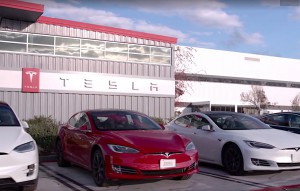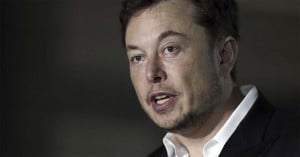
Tesla said its vehicles do not have a problem with unintended acceleration, claiming a short seller is seeking to cause problems.
Tesla Inc. officials didn’t take long to deny accusations about unintended acceleration levied in a petition filed with the National Highway Traffic Safety Administration.
The California-based EV maker says the claims are false, and are the work of one of the company’s many short sellers who is looking to put the brakes on the company’s rising stock price. Brian Sparks, who is currently shorting Tesla stock, according to CNBC, submitted the petition in September.
NHTSA began a technical review of about 500,000 Tesla vehicles last week for the problem after a petition was submitted. The petition covers 2012 through 2019 model year Tesla Model S, 2016 through 2019 Tesla Model X, and 2018 through 2019 Tesla Model 3 vehicles, Reuters reported.
(Tesla under scrutiny for unintended acceleration)
“Over the past several years, we discussed with NHTSA the majority of the complaints alleged in the petition. In every case we reviewed with them, the data proved the vehicle functioned properly,” Tesla said in a blog post.
There 127 consumer complaints to NHTSA involving 123 unique vehicles, according to the petition. The reports include 110 crashes and 52 injuries, the agency added.
After a technical review, NHTSA can either deny the petition or grant it. If granted, the agency then begins a formal investigation. Anyone can petition NHTSA for a defect investigation, and many of those petitions have been rejected by the agency in the past.
(Tesla buys German gigafactory site for $45 million)
Sudden acceleration has been a problem in the past in the auto industry. Toyota battled the issue for years, including the investigation by NHTSA as well as dozens of lawsuits. Before that, Audi had to deal with a similar issue.
The complaints about Tesla follow an eerie pattern seen before, such as incidents when vehicle owners were attempting to park their EVs in a garage or a curb, Reuters noted. However, Tesla had a response for those problems.
“While accidents caused by a mistaken press of the accelerator pedal have been alleged for nearly every make/model of vehicle on the road, the accelerator pedals in Model S, X and 3 vehicles have two independent position sensors, and if there is any error, the system defaults to cut off motor torque,” Tesla noted in its blog.
(Tesla offers investors a third-quarter surprise — a profit)
“Likewise, applying the brake pedal simultaneously with the accelerator pedal will override the accelerator pedal input and cut off motor torque, and regardless of the torque, sustained braking will stop the car.”


